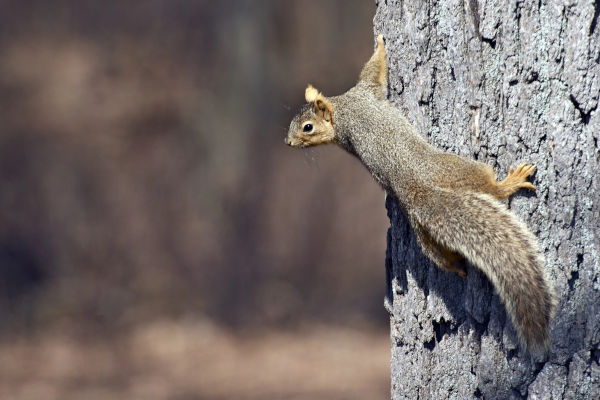Improving Wildlife Habitats For New Hampshire Properties

There's just something about getting out and exploring the woods in New Hampshire and engaging with all sorts of wildlife. If you're a landowner, consulting with an experienced forestry professional about strategies for wildlife habitat improvement on your property can help you attract the wildlife you want to see. A few of the more common species that our clients are seeking include:
- Deer
- Moose
- Black Bear
- Grouse
- Turkey
- Songbirds
- Small mammals
- Bees, butterflies, and other pollinators
The key to bringing more wildlife into your woods is to create a forest management plan that provides food, water, and shelter to target certain species. Your New Hampshire forestry specialist will help you develop customized solutions that utilize your property's resources to support a variety of thriving native species.
Selective Timber Harvesting
Practicing selective timber harvesting can help maintain forest structure and diversity. Thinning overstacked stands of trees or reclaiming old fields can also create more open areas for wildlife. Controlling and removing invasive plant species that negatively impact wildlife is also important when it comes to wildlife habitat improvement.
Wildlife Corridors
Locating and enhancing natural wildlife corridors or clearing skid trail connections and clear-cut openings allow easy access to water sources and food plots. Forest edge enhancements that create a gradual transition between different habitats, like planting native shrubs and trees, can also provide food, cover, and access for a variety of wildlife species.
Water Sources & Food Plots
Creating or enhancing existing water sources to ensure wildlife access is a huge attractor for all types of wildlife. Planting food plots with native plants and trees like wild apple or beech mast will also attract diverse species, and you can customize the vegetation for specific animals like turkey or deer. Your forestry expert can guide you through the process of establishing food and water sources for wildlife habitat improvement.
Monitoring & Inspections
Annual or seasonal forestry inspections are a great way to monitor your wildlife habitat improvement by creating benchmarks to assess their effectiveness. Your forestry specialist will be informed about the latest research and best practices for wildlife environment management and can suggest adjustments to your plan to maximize your results. Be sure to ask about annual forest safety inspections as a part of your forestry management routine.
Experienced Wildlife Habitat Improvement Experts
If you've been looking for an experienced tree harvester and forestry management professional to help you improve your New Hampshire property's wildlife habitat, the pros at Stillwater Forestry LLC can help. We have over 15 years of experience working with New Hampshire area property owners to optimize their wildlife habitats to enjoy the natural beauty that our forested lands have to offer.
To find out more about wildlife habitat improvements for your timber land in New Hampshire, Maine, or Vermont, give the forestry management professionals at Stillwater Forestry LLC a call today at 1-800-237-9253! We're your trusted ally in the management of your forest!
Are You Looking for Forest Management Services in New Hampshire or Vermont? Contact Stillwater Forestry Today!